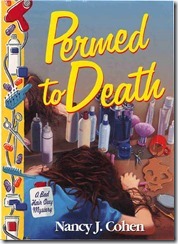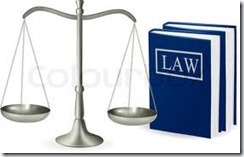I am involved in my own revisions for Warrior Lord, book #3 in the Drift Lords series. This means two read-throughs. The first round is for line editing and catching repetitions. The second round is to read for smoothness, final word tweaks, and consistency. Then I’ll send it in to my editor. When I get it back and read through it again, I am always appalled at the number of things I still need to change. This proves revisions are never done. You have to call a halt when you feel you’ve done your best. So what should you do during your self-edits? Use this advice as a guideline.
Have an identifiable main character. With multiple viewpoints, you run the risk of detaching your reader unless you go into deep viewpoint with each switch. Have one main character with whom we can identify and cheer on, otherwise why should we care what happens?
Make your protagonist likeable. Have you watched TV shows where none of the people appeal to you? Would you continue watching it? Even if you employ an anti-hero in your story, give him a reason for his anti-social behavior. He has to be redeemable or sympathetic in some way.
Motivate your characters with clear goals. If they don’t care what’s happening, why should your reader? Make sure your character’s goals are obvious up front. Why is this important to him? What is he doing to make it happen? What’s stopping him? What stakes are involved?
Invest your characters with attitude to give them a distinctive personality. NO: I’m fine, thanks. YES: You really wanna know? OR: It’s none of your business, dude.
Keep description within the viewpoint of your character. Similes and metaphors should be within her frame of reference. Hairdresser: as limp as a strand of shampooed hair. Or: as tight as a newly permed curl.
When you’re in deep viewpoint, use pronouns rather than the character’s name. Keep viewpoints distinctive. Use a new paragraph with a space break when you switch heads.
Avoid flashbacks and backstory. This is probably the most common mistake of newbie writers. Leave the past in the past unless it’s important for your current story. Keep the action moving forward. Drop in backstory into dialogue or relate it in brief thoughts during action scenes. Less is better. There’s nothing faster that will disengage your reader and kill the pacing than long passages of backstory or flashbacks suddenly inserted into the middle of a scene.
Show, don’t tell. Show me your character’s emotions. Don’t tell me about them, or I won’t be engaged as a reader. NO: She felt afraid. YES: Ice gripped her heart. NO: He was angry. YES: He slammed his fist into the door. Physical reactions and nonverbal clues indicate emotions. Without these, you’ve written a cardboard character who I can’t relate to as a reader. Also, don’t have the hero only perform action stunts and hold terse dialogues. Show me how he reacts internally. Introspection is important to helping us relate to him, although paragraph after paragraph of angst can get tiring. Just don’t leave it out or I won’t get a feel for him as a person.
Dialogue should have a purpose. Conversations should advance the plot or reveal character. Know going into a scene what you mean to reveal. If your characters are aimlessly yakking about their love lives or what they’re cooking for dinner, cut the conversation. Don’t ramble. Have a snappy conversation filled with innuendos and hidden meanings. And remember to include your protagonist’s emotional reactions. Also, don’t overuse dialects. Sprinkle in some foreign or slang terms to give the flavor without making sentences hard to pronounce.
Beware of talking heads. Lines of dialogue need to be broken up by character tags, such as sensory descriptions or action. Remember to include emotional reactions and introspection so we can see what’s preying on your character’s mind.
Eliminate most substitutes for said along with adverbs that describes speech. NO: I love it, he chortled merrily. YES: I love it, he said with a chuckle.
Replace he/she said with character tags. Use action as an identifier and bring in the five senses whenever possible. NO: “I suppose you’re right,” she said. YES: “I agree.” Her nape prickled as though Grace’s words had prophetic power.
Avoid long paragraphs of exposition. Show us the scene unfolding from the character’s viewpoint. Otherwise, do these passages really need to be there? Make the reader feel what your hero feels. Don’t just tell us what’s going on.
Tighten your sentence structure by replacing phrases with precise words. NO: the light of the boat YES: the boat’s light NO: He ran down by the terrace and out toward the lake. YES: He sped past the terrace toward the lake.
Replace passive verbs with active tense. NO: The slaves were slain by lions. YES: Lions mauled the slaves. NO: His forehead was heated by the sun baking overhead. YES: The baking sun heated his brow.
Replace walked and went with a more visual word. She shuffled toward the door. He raced down the street. He sprinted across the yard.
Dangling Participles. Learn by example: NO: Glancing into the rearview mirror, her breath released upon noticing the coast was clear. YES: Glancing into the rearview mirror, she released a breath upon noticing the coast was clear.
Gerunds. Beware of ing phrases that are illogical. NO: Flinging the door wide, she stepped inside the darkened interior. YES: She flung the door wide and stepped inside the darkened interior.
Avoid weak phrases like seemed to, tried to, began to. NO: He seemed to want her input. YES: His smile encouraged her to speak. NO: She tried to tie the knot, but it slipped through her fingers. YES: As she fumbled with the knot, the rope slipped from her fingers. Also avoid unnecessary phrases such as she realized, she figured, he decided, he watched, he thought.
Be realistic about meal and work hours.
Avoid weak verbs: is, was, are, were, there was. NO: There was water on the window. YES: Water droplets beaded the window. NO: His pulse was racing. YES: His pulse raced.
Avoid negatives. NO: He would not wait any longer if she didn’t appear. YES: He’d leave if she failed to show up.
Delete redundancies. NO: sat down YES: sat NO: He thought to himself YES: He thought. BETTER: eliminate he thought if you’re in his viewpoint.
Check for repetitions: Most of us subconsciously overuse a favorite word. Be alert for these when you read through your manuscript. (I just counted how many times I use the word “just” here, and it’s 9 times. I’m guilty!) Avoid the same phrases or words in consecutive pages. Watch out for repeats of the same information in conversations or in a person’s thoughts.
Eliminate the word “that” where not needed.
Remove qualifiers that weaken your prose, such as: very, rather, quite, really, just, awfully. NO: I remembered that she was really nice. YES: I remembered how her smile lit the room. NO: It was very hot. YES: The heat made my skin itch.
Beware of flying body parts.NO: Her eyes flew across the room. YES: Her gaze flew across the room. NO: She threw her hands in the air. YES: She raised her arms.
Be specific: NO: She passed a clump of flowers. YES: She passed a clump of red tulips sprouting from the ground like supplicating hands. NO: It had been a hard day. YES: Her body sagged as though she’d run a marathon (cliché alert?).
Learn correct spelling and usage: their or they’re; it’s or its; lay or lie; you’re or your. This is fundamental, and there is no excuse for getting these wrong.
Use descriptive detail only when it enhances your story. Too much description can slow pacing and lose the reader’s interest. However, whenever you describe a scene, remember to use the five senses. If you want to engage the reader, include specific sensory details.
Avoid clichés like the plague. If you spot one during revisions, go back and replace it with something more original. NO: He wore a scowl like a cloak. YES: He wore a scowl like a seasoned samurai (and he’s Japanese, so this fits the frame of reference).
Go for strong endings at ends of sentences. Don’t end sentences on a preposition. NO: I didn’t know what he was waiting for. YES: I didn’t understand why he waited. NO: He stared in horrified dismay at her. YES: He stared at her in horrified dismay.
It helps if you put aside your work for several weeks after completing the initial draft. Coming back to it with a fresh perspective will allow you to catch things that might otherwise slip by. Working off a hard copy and reading dialogue aloud are other techniques to use. You want to polish your manuscript until it figuratively sparkles and then move on to the next story.









